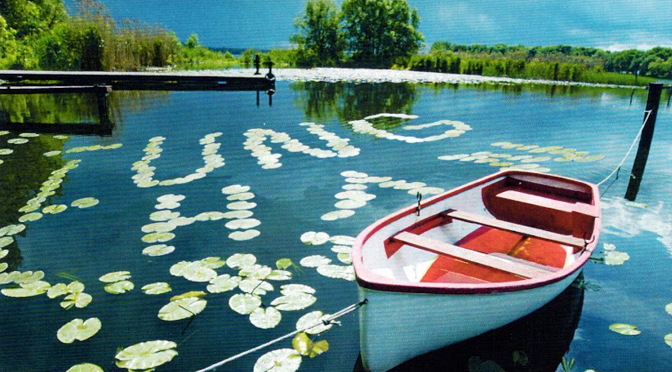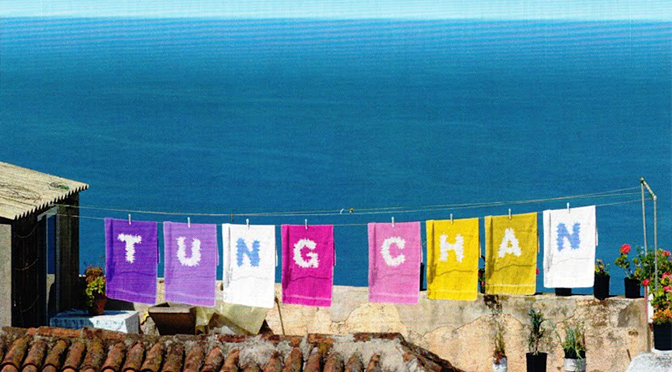By Tung Chan
Special to The Province
The phrase “ethnic enclave” refers to neighbourhoods where people of the same ethnic background live in high concentrations. Parts of Richmond and Surrey are said to be ethnic enclaves for Chinese and South Asians.
Ethnic enclaves are thought to contribute negatively to the cohesiveness of our society. They are deemed to be places that need to be broken up.
In a survey done by the Vancouver Foundation last year, three groups of people who identified themselves as living in their own enclaves felt less connected. These are people aged 25 – 34, those who live in high-rises and newcomers.
At the request of local Chinese language media outlets, the Vancouver Foundation did a breakdown of the Chinese-Canadian respondents. They found there are more similarities than differences between them and the total sample.
Just like the total sample, only about four in 10 Chinese-Canadian respondents attended a cultural event put on by a cultural or ethnic group different than their own.
And just like the total sample, Chinese-Canadian respondents said the biggest obstacle to getting more engaged in community life is the feeling that they have little to offer.
The main reason Chinese-Canadian respondents gave for not knowing their neighbours better is the same as other respondents — they seldom see them.
In other words, people are living in silos not because of “ethnic enclaves” but because we don’t have enough social pathways that lead people to get to know one another. Over one third of those surveyed said they have no close friends outside their own ethnic group.
Our society prides itself on being inclusive and multicultural. But how can we be that if more than one third of us don’t have close friends from outside our ethnic background and most of us participate only in events organized by our own ethnic group?
Why is it important for us to know one another more? We live in one of the most diverse cities in the world. Not understanding each other’s nuances of habits, behavior, likes and dislikes will inevitably produce unnecessary misunderstandings and conflicts.
To avoid this we need to build more social pathways to help people cross cultural barriers. Each year we spend millions building roads and transportation infrastructures to connect geographic communities. But how much money and effort do we spend on creating social pathways for so-called “ethnic enclaves” to connect with each other?
If a geographically isolated community is not connected with society we would not label people in those communities as not willing to connect with others. We would build roads and highways to help them to connect. But we blame people who live in their own cultural communities for not trying to reach out. We label their neighbourhoods with the pejorative term “enclave”.
There are many things we can do to build social pathways to connect people of different cultures. We can have a day where every community is encouraged to have an open house in their cultural neighbourhood. In Vancouver, we have an Italian town on Commercial Drive, a South Asian town in South Vancouver, a Greek town on West 4th, a Chinatown on Pender Street, and a Vietnamese town along Kingsway.
What if we had a day where every neighbourhood has an open house and people are encouraged to visit a neighbourhood outside their own cultural communities?
It’s important to create opportunities for people to connect emotionally. Remember how Canadians of all skin colors and backgrounds cheered together and high fived each other on Robson Street during the 2010 Winter Olympics?
It would be fun to have an international drum festival each summer. Anyone who has listened to the drum beats of more than one culture will be struck by their similarity. Perhaps a drum festival will bring all of us out of our own enclaves and connect us as a community of one.
(Tung Chan is Chair, Canadian Museum of Immigration at Pier 21 and a director of the Vancouver Foundation)
Pre-Edited Version
By Tung Chan, July 29, 2013
The phrase “ethnic enclave” has been bandied about in recent times. The term refers to neighbourhoods where people of the same ethnic background live in high concentration. Parts of Richmond and Surrey are said to be ethnic enclaves for Chinese and South Asians. Ethnic enclaves, by conventional wisdom, are thought to contribute negatively to the cohesiveness of our society. In other words, it is viewed with suspicion and deemed to be places that need to be broken up.
In a survey done by the Vancouver Foundation last year, three groups of people self identified as living in their own enclaves in that they feel less connected. These are people between the ages of 25 – 34, people who live in high-rises and new comers to our community.
At the request of local Chinese language media outlets, Vancouver Foundation did a breakdown of the Chinese-Canadian respondents. They found there are more similarities than differences between them and the total sample.
Just like the total sample, only about four in 10 Chinese-Canadian respondents attended a cultural or ethnic event put on by a cultural or ethnic group different than their own.
And just like the total sample, Chinese-Canadian respondents said the biggest obstacle to getting more engaged in community life is the feeling that they have little to offer.
Chinese-Canadian respondents are among the most frequent users of libraries, community centres and recreation facilities. But they are among the least likely to have participated in a neighbourhood or community project, or attended a neighbourhood or community meeting.
To everyone’s surprise, the survey found that language is not a significant barrier to getting to know their neighbours. Only 6 per cent of the total Chinese-Canadian sample said that language was the main factor. That number rises to 16 per cent for people who speak Mandarin at home.
The main reason Chinese-Canadian respondents gave for not knowing their neighbours better is the same as other respondents — they seldom see them.
In other words people are living in silos not because of so call “ethnic enclaves” but because we don’t have enough social pathways that led people to meet and know one another. May be because of such isolation, over one third of the people surveyed said they have no close friends outside their own ethnic group.
We are a society that prides ourselves as being inclusive and multicultural. But how can we be truly inclusive and multicultural if over on third of us do not have close friends from outside of our own ethnic background and the majority of us participate only in events organized by one’s own ethnic group.
But why is it important for us to know one and other more? We are living in one of the most diverse cities in the world. According to the 2011 census, more than 45 per cent of Metro Vancouver residents are born outside of Canada. These people come with vastly different cultural background and life experiences. They have different perspectives on cultural, economic and political events. Not knowing enough each other and the nuances of habits, behaviour and likes and dislike will inevitably produce unnecessary misunderstandings and conflicts.
To avoid such unnecessary misunderstandings we need to build more social pathways for people to cross cultural barriers. Each year, as a society, we spend millions of dollars in building roads and transportation infrastructures to connect geographic communities. We build highways, sky trains and airports to help link communities together. But how much money and effort we spend on linking cultural communities together? How much efforts we, as a society spend on creating social pathways for so call “ethnic enclaves” to connect with each other? If a geographically isolated community is not connecting with the rest of the society, we would not label people who live in those communities as not willing to connect with other people. We would not blame them for not trying. We will build roads and highways to help them to connect with the rest of the society. But we will blame people who live in their own cultural
communities for not trying to reach out. We label their neighbourhoods with the pejorative term “enclave”.
There are many practical things that we as a society can do to build social pathways to connect people of different cultural background. We can, for example, have a cultural day where every community is encourage to have an open house in their cultural neighbourhood. In Vancouver, we have an Italian town on Commercial Drive, we have a South Asian town in South Vancouver, we have a Greek town on West 4th, we have a Chinatown on Pender Street, and we have a Vietnamese town along Kingsway. What if we have a day where every neighbourhood have an open house and people are encouraged to visit a neighbourhood outside of their own cultural communities? The day or weekend could be capped with a cultural show featuring the best entertainers from each community’s home country together with internationally known local talents.
I think it is also important to create opportunities for people to connect emotionally. People will remember how Canadians of all cultural backgrounds mingled and cheered together during the Winter Olympic of 2010 in Vancouver. Young people of all skin color and heritage were high fiving each other on Robin Street. The shared experience of people watching the Symphony of Light firework shows in English Bay in the summer come close to that but the emotional sharing is not as intense.
It would be fun to have an international drum festival in the summer each year. All human beings spend the first ten months of their existence inside their mother’s womb a few centimeters away from her heart. We can all relate to the sound of the constant heart beat and we all do respond in a primitive way to similar sounds. Anyone who has listened to the drum beats of more than one culture will be struck by their similarity. It does not matter whether the drum beats come from a marching band from America or Daiku music from China; it does not matter whether it is the sounds of the steel drums from Jamaica or the Dholak drums from India, they all touched us on a primitive level. Perhaps a drum festival will bring all of us out from our own enclaves and connecting us as a community of one.




